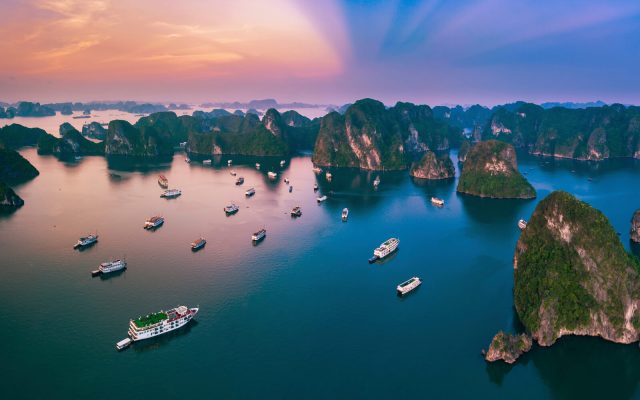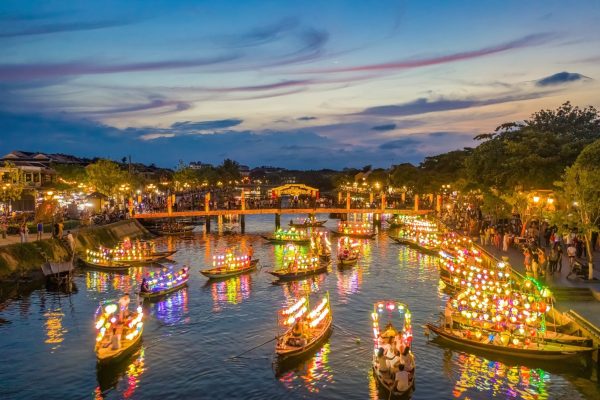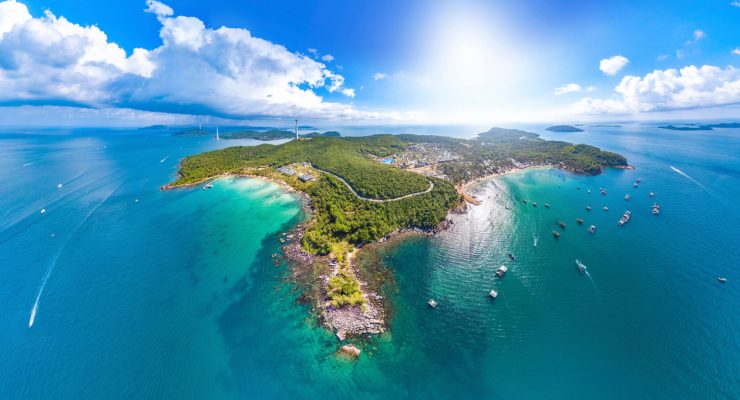Vietnam
Vietnam is an exciting country for tourism and investment. Bustling street life, delicious cuisine and majestic scenery all await you. A country constantly in motion, Vietnam always balances young urban culture with traditional values. In the city, ancient temples are just a turn away from modern shops. In the countryside, life still flows along the rivers and harvests. This contrast between old and new makes up a large part of Vietnam’s appeal. Another reason to visit Vietnam is its natural beauty. The North has majestic mountains and beautiful limestone bays. The Central Coast Road leads to historical relics and romantic beaches.

Location and Geography: Vietnam is located in Southeast Asia, bordered by China to the north, Laos and Cambodia to the west, and the South China Sea to the east and south. The country has diverse geography, including mountains, highlands, deltas, and coastal plains.
Capital: The capital city of Vietnam is Hanoi, located in the northern part of the country. It’s known for its centuries-old architecture and rich cultural heritage.
Population: As of my last update, Vietnam had a population of over 97 million people, making it the 15th most populous country in the world.
Language: The official language of Vietnam is Vietnamese. English is increasingly spoken, especially in urban areas and among younger generations.
Currency: The currency used in Vietnam is the Vietnamese đồng (VND). ATMs are widely available in cities and tourist areas.
Culture and Cuisine: Vietnamese culture is heavily influenced by Confucianism, Buddhism, and Taoism. The cuisine is renowned worldwide for its fresh ingredients, intricate flavors, and balance of sweet, sour, salty, and spicy tastes. Some popular Vietnamese dishes include pho (noodle soup), banh mi (baguette sandwiches), and spring rolls.
History: Vietnam has a rich history dating back thousands of years, with periods of Chinese domination, French colonization, and more recently, the Vietnam War (also known as the Second Indochina War), which ended in 1975. The war had a profound impact on the country and its people.
Economy: Vietnam has experienced rapid economic growth in recent decades, transitioning from a centrally planned economy to a socialist-oriented market economy. Key industries include manufacturing, agriculture, tourism, and technology.
Tourism: Vietnam is a popular tourist destination known for its stunning natural landscapes, vibrant cities, ancient temples, and delicious cuisine. Major tourist attractions include Ha Long Bay, Hoi An Ancient Town, Ho Chi Minh City (formerly Saigon), and the Mekong Delta.
Travel Tips: When visiting Vietnam, it’s advisable to dress modestly, especially when visiting religious sites. It’s also important to be aware of cultural customs and etiquette. Vietnamese people are generally welcoming and hospitable, but it’s always good to respect local customs and traditions. Additionally, be cautious of traffic when crossing the streets, as traffic can be chaotic in some cities.
These are just a few pieces of useful information about Vietnam. If you need more specific details or have any other questions, feel free to ask!














